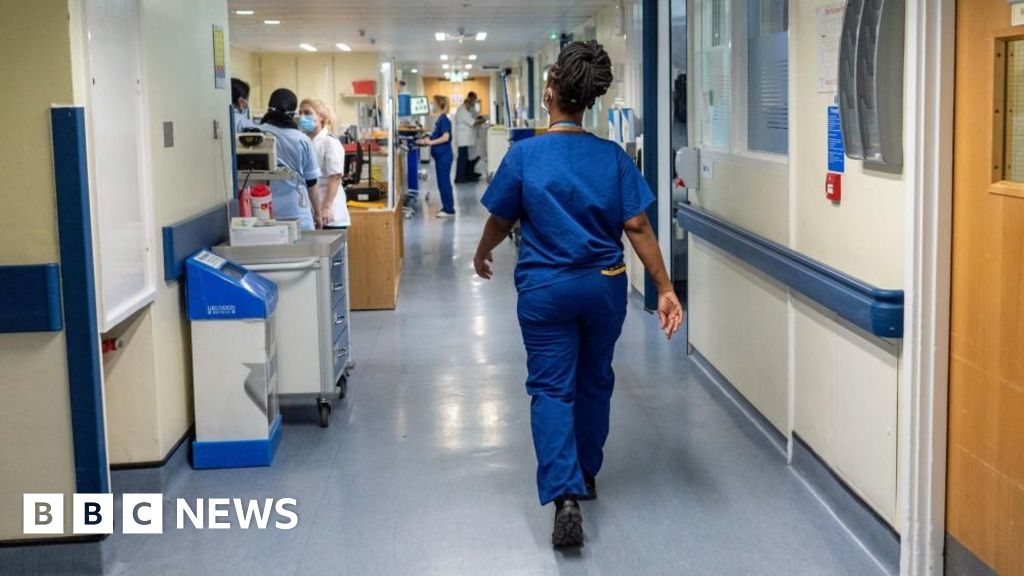ACI Prensa Staff, Jan 12, 2024 / 17:45 pm
The Catholic bishops of the Mexico-Texas border region issued a joint call Jan. 10 urging the governments of both countries to implement concrete actions to improve the situation of migrants and their families.
The 11-page document provides background on the drama of immigration, the biblical basis for welcoming migrants, and public policy recommendations.
In their joint statement, the prelates proposed a series of measures, including “increasing and simplifying the granting of visas and adopting private and community sponsorship programs.” They also encouraged “opening safe and legal humanitarian corridors for the most vulnerable migrants and refugees.”
The bishops also asked the authorities to “offer adequate and decent accommodation” for people in transit in either country. For minors, they called for “regular access to education and provision of temporary custody or foster care programs.”
On the economic issue, they requested that migrants be given “freedom of movement and the possibility of working” and “offering them the possibility of participating in an economy that allows them to be integrated into society.”
The bishops also emphasized the importance of guaranteeing “consular assistance, equitable access to justice and religious freedom,” and “ensuring the right to always have identity documents on one’s person.”
Among other things, they asked for “family reunification to be facilitated” and “for local communities to be prepared for assimilation efforts.”
In their statement, the bishops expressed their concern about the “immigration policies implemented by the United States government and the detention and containment policy in Mexico.”
The president of Mexico, Andrés Manuel López Obrador, has denied on different occasions that his counterpart from the United States, Joe Biden, has asked him to tighten immigration controls.
However, the prelates noted that the immigration policies implemented have caused “uncertainty, rejection, persecution, and violation of their human rights, exposing them to falling into the hands of criminal organizations in order to reach their destination.”
The International Organization for Migration considers the border between the United States and Mexico to be “the most dangerous land migratory route in the world” with a record of 686 migrants dead or missing along that dividing line in 2022.
The militarization of borders has also been the subject of criticism by the bishops, who pointed out “the abuse of authority, arbitrary detentions, and separation of families” due to this situation.
The prelates clarified that the “Church does not advocate open borders but rather laws that respect basic human rights.”
“Governments must create laws that include both a secure border and a humane immigration policy. We do not encourage illegal or undocumented migration, but rather we advocate for legal avenues for migration,” they said.
The bishops also committed to “strengthening ongoing dialogue,” supporting their respective episcopal conferences in order to “grow in solidarity between sister dioceses” and to “foster greater interdenominational collaboration.”
The Mexican bishops who signed the statement and their respective dioceses are Bishop Andrés Lira Rigarcía of Matamoros, Bishop José Guadalupe Torres Campos of Ciudad Juárez, Bishop Alonso Gerardo Garza Treviño of Piedras Negras, Bishop Hilario González García of Saltillo, and Auxiliary Bishop Juan Carlos Arcq Guzmán of Monterrey.
The Texas bishops who signed the statement and their respective dioceses are Archbishop Gustavo García-Siller of San Antonio, Auxiliary Bishop Michael Boulette of San Antonio, Auxiliary Bishop Gary Janak of San Antonio, Bishop Mark Seitz of El Paso, Bishop Michael Sis of San Angelo, Bishop Jaime Tamayo of Laredo, Bishop Daniel E. Flores of Brownsville, and Auxiliary Bishop Mario A. Avilés of Brownsville.
This story was first publishedby ACI Prensa, CNA’s Spanish-language news partner. It has been translated and adapted by CNA.
 (1).png)
 11 months ago
13
11 months ago
13



















